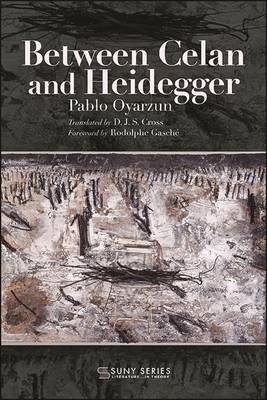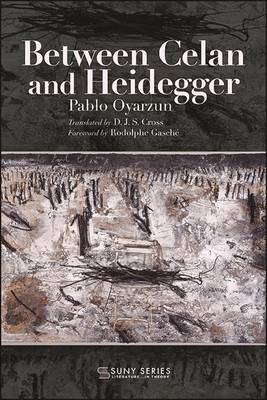
- Retrait gratuit dans votre magasin Club
- 7.000.000 titres dans notre catalogue
- Payer en toute sécurité
- Toujours un magasin près de chez vous
- Retrait gratuit dans votre magasin Club
- 7.000.0000 titres dans notre catalogue
- Payer en toute sécurité
- Toujours un magasin près de chez vous
Description
Probing reassessment of the relation between Celan's poetry and Heidegger's thought.
The relevance of Martin Heidegger's thinking to Paul Celan's poetry is well known. Between Celan and Heidegger proposes that, while the relation between them is undeniable, it is also marked by irreducible discord. Pablo Oyarzun begins with a deconstruction of Celan's Todtnauberg, written after the poet visited Heidegger in his Schwarzwald cabin. The poem stands as a milestone, not only in the complex relationship between the two men but also in the state of poetry and philosophy in late modernity, in the aftermath of the Holocaust. Discussion then turns to The Meridian, Celan's acceptance speech for the prestigious Büchner Prize for German language literature. Other issues are insistently addressed-place, art, language, pain, existence, and the Heideggerian notion of dialogue-as Oyarzun revisits several essential poems from Celan's oeuvre. A rare translation of Oyarzun's work into English, Between Celan and Heidegger affirms the uniqueness of Celan's poetry in confrontation both with Heidegger's discourse on Dichtung (a poetic saying centered in the idea of gathering) and with Western philosophical notions of art, technē, mimesis, poiesis, language, and thinking more broadly.
Spécifications
Parties prenantes
- Auteur(s) :
- Traducteur(s):
- Editeur:
Contenu
- Nombre de pages :
- 204
- Langue:
- Anglais
- Collection :
Caractéristiques
- EAN:
- 9781438488363
- Date de parution :
- 02-12-22
- Format:
- Livre broché
- Format numérique:
- Trade paperback (VS)
- Dimensions :
- 152 mm x 229 mm
- Poids :
- 303 g

Les avis
Nous publions uniquement les avis qui respectent les conditions requises. Consultez nos conditions pour les avis.






